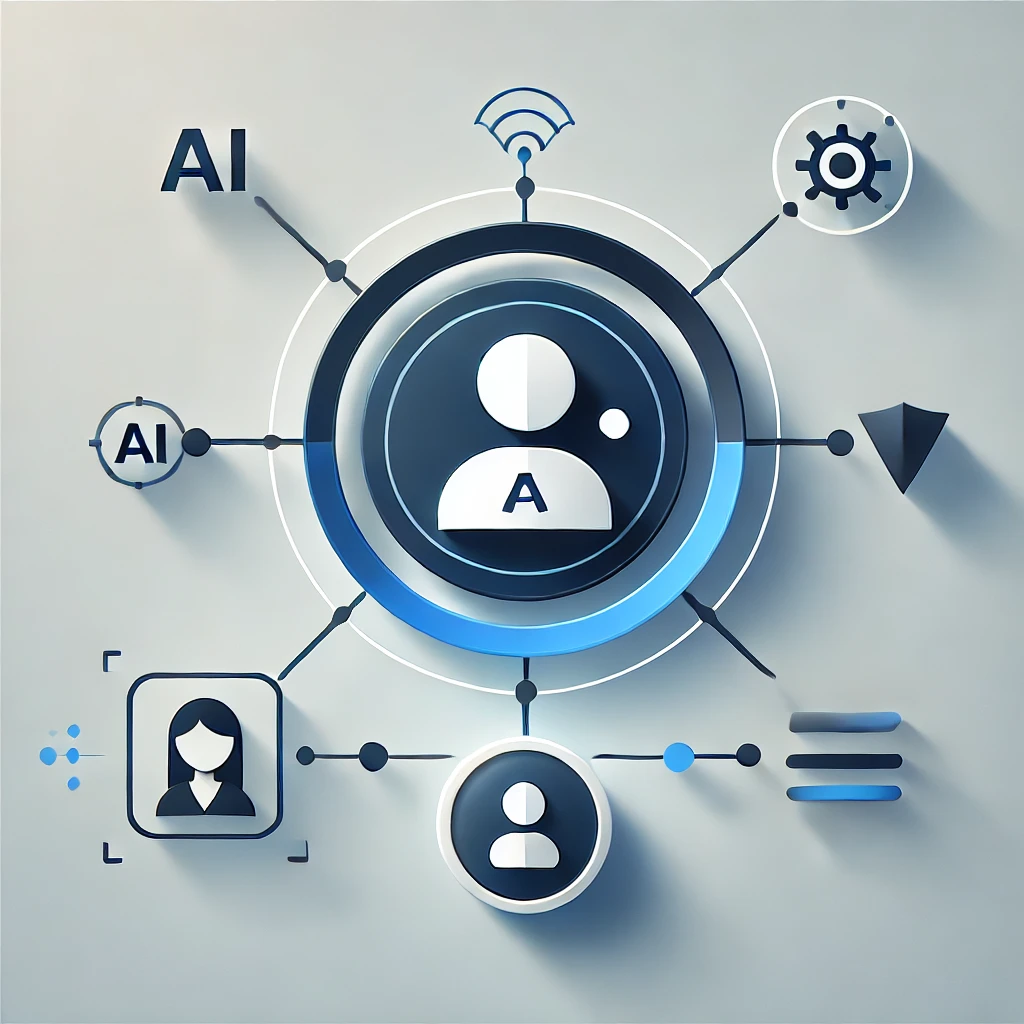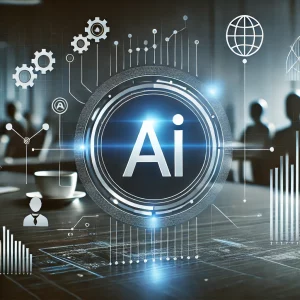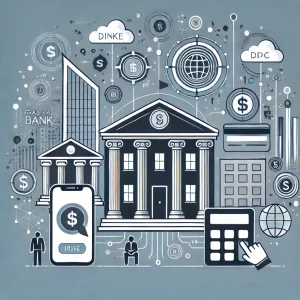The Role of AI in Personalizing User Experiences

In today’s digital age, personalization has become the cornerstone of user satisfaction. From online shopping to streaming services, customers now expect experiences tailored to their preferences and behaviors. At the heart of this transformation is artificial intelligence (AI), which has revolutionized the way businesses interact with their users. By leveraging vast amounts of data, AI enables organizations to deliver dynamic, customized experiences that resonate on an individual level.
This article explores the pivotal role of AI in personalizing user experiences, the technologies driving this shift, and the implications for businesses and consumers.
The Importance of Personalization
Personalization is more than a trend; it’s a necessity for staying competitive in a world where customers are inundated with choices. Here’s why personalization matters:
- Enhanced User Engagement: Personalization keeps users engaged by delivering relevant content, recommendations, and services tailored to their preferences.
- Improved Customer Loyalty: When users feel understood and valued, they are more likely to remain loyal to a brand.
- Higher Conversion Rates: Personalized experiences drive higher conversion rates by aligning offerings with individual needs and desires.
- Data-Driven Insights: Personalization provides businesses with valuable insights into customer behavior, preferences, and pain points.
However, achieving effective personalization at scale is a challenge, and that’s where AI steps in.
How AI Drives Personalization
AI technologies, particularly machine learning (ML) and natural language processing (NLP), are at the forefront of personalized user experiences. By analyzing user data, AI can uncover patterns, predict behaviors, and deliver tailored solutions.
1. Recommendation Systems
AI-powered recommendation systems are ubiquitous in e-commerce, streaming, and social media platforms. These systems analyze user preferences, browsing history, and purchase patterns to suggest products, content, or connections.
- Examples:
- Netflix recommends shows and movies based on your viewing history and ratings.
- Amazon suggests products based on your search and purchase history.
Recommendation systems rely on techniques like collaborative filtering, content-based filtering, and hybrid models to provide accurate and relevant suggestions.
2. Dynamic Content Delivery
AI enables real-time content personalization by analyzing user interactions and adapting content accordingly. For instance:
- News apps curate articles based on a user’s reading habits and interests.
- Websites display dynamic banners or product showcases that reflect a user’s browsing behavior.
3. Chatbots and Virtual Assistants
AI-powered chatbots and virtual assistants enhance user experiences by offering personalized support and recommendations. They leverage NLP to understand user queries and deliver context-aware responses.
- Examples:
- Apple’s Siri and Amazon’s Alexa personalize interactions by learning user preferences.
- Customer support bots provide tailored solutions based on past interactions and user profiles.
4. Personalized Marketing Campaigns
AI enables hyper-targeted marketing by segmenting audiences based on demographics, behavior, and preferences. Marketers can use AI to create personalized email campaigns, advertisements, and social media content that resonates with individual users.
5. Adaptive Learning Systems
In the education sector, AI personalizes learning experiences by adapting content to the pace and style of individual learners. Platforms like Duolingo and Khan Academy use AI to provide tailored exercises and feedback, ensuring that learners stay motivated and engaged.
Technologies Powering AI Personalization
Several key AI technologies drive personalization:
1. Machine Learning
ML algorithms analyze user data to identify patterns and make predictions. Supervised learning, unsupervised learning, and reinforcement learning are commonly used to develop personalization systems.
2. Natural Language Processing (NLP)
NLP allows AI systems to understand, interpret, and respond to human language. This is crucial for applications like chatbots, virtual assistants, and content recommendation systems.
3. Computer Vision
In industries like retail and healthcare, computer vision enables personalization by analyzing visual data. For example, virtual try-on features in fashion apps use computer vision to recommend products.
4. Predictive Analytics
Predictive models use historical data to anticipate future user behaviors, helping businesses deliver proactive and relevant experiences.
5. Data Integration and Analysis
AI systems integrate data from multiple sources—websites, apps, social media, and sensors—to create comprehensive user profiles that inform personalized experiences.
Benefits of AI-Powered Personalization
AI-driven personalization offers significant advantages to both businesses and consumers:
1. Enhanced Customer Satisfaction
Tailored experiences make users feel understood and valued, fostering satisfaction and loyalty.
2. Efficiency and Scalability
AI automates the process of analyzing user data and delivering personalized experiences, enabling businesses to scale without sacrificing quality.
3. Revenue Growth
Personalization increases customer engagement, leading to higher sales and improved retention rates.
4. Competitive Edge
In a crowded marketplace, personalized experiences help brands stand out and build deeper connections with their audience.
5. Real-Time Adaptability
AI allows businesses to adapt quickly to changing user preferences, ensuring that experiences remain relevant.
Challenges of AI Personalization
Despite its potential, AI-driven personalization comes with challenges:
1. Privacy Concerns
Personalization relies on collecting and analyzing user data, raising concerns about data privacy and security. Companies must prioritize transparency and adhere to regulations like GDPR and CCPA.
2. Over-Personalization
Excessive personalization can feel intrusive and alienate users. Striking the right balance is crucial.
3. Data Quality and Bias
AI systems are only as good as the data they are trained on. Poor-quality data or inherent biases can lead to inaccurate or unfair personalization.
4. Technical Complexity
Implementing AI-powered personalization requires significant investment in technology, talent, and infrastructure.
Case Studies: AI Personalization in Action
1. Spotify
Spotify’s Discover Weekly and personalized playlists are prime examples of AI-driven personalization. By analyzing a user’s listening habits and comparing them with those of similar users, Spotify curates music recommendations that feel uniquely tailored.
2. Sephora
The beauty retailer uses AI to deliver personalized recommendations through its Virtual Artist app. Customers can upload selfies to try on makeup virtually and receive product suggestions based on their preferences.
3. Stitch Fix
The online styling service combines AI and human expertise to deliver curated fashion recommendations. AI analyzes user preferences, while stylists fine-tune selections for a personal touch.
The Future of AI in Personalization
The future of AI-powered personalization holds exciting possibilities:
1. Context-Aware Systems
Future AI systems will incorporate contextual data—such as location, time, and emotional state—to deliver even more relevant experiences.
2. Voice and Gesture Recognition
Advances in voice and gesture recognition will enable more intuitive and immersive personalized interactions.
3. Hyper-Personalization
AI will move beyond general personalization to hyper-personalization, where every aspect of the user journey is tailored to individual preferences.
4. Ethical AI
As personalization becomes more pervasive, the emphasis on ethical AI will grow. This includes ensuring fairness, transparency, and respect for user privacy.
Conclusion
AI is transforming the way businesses connect with their users by enabling unparalleled levels of personalization. By leveraging technologies like machine learning, NLP, and predictive analytics, companies can deliver tailored experiences that enhance satisfaction, engagement, and loyalty.
However, with great power comes great responsibility. As AI personalization continues to evolve, businesses must navigate challenges related to privacy, bias, and ethical considerations. By striking the right balance, AI-driven personalization can create meaningful, long-lasting connections between brands and their users—shaping a future where every experience feels uniquely crafted.





